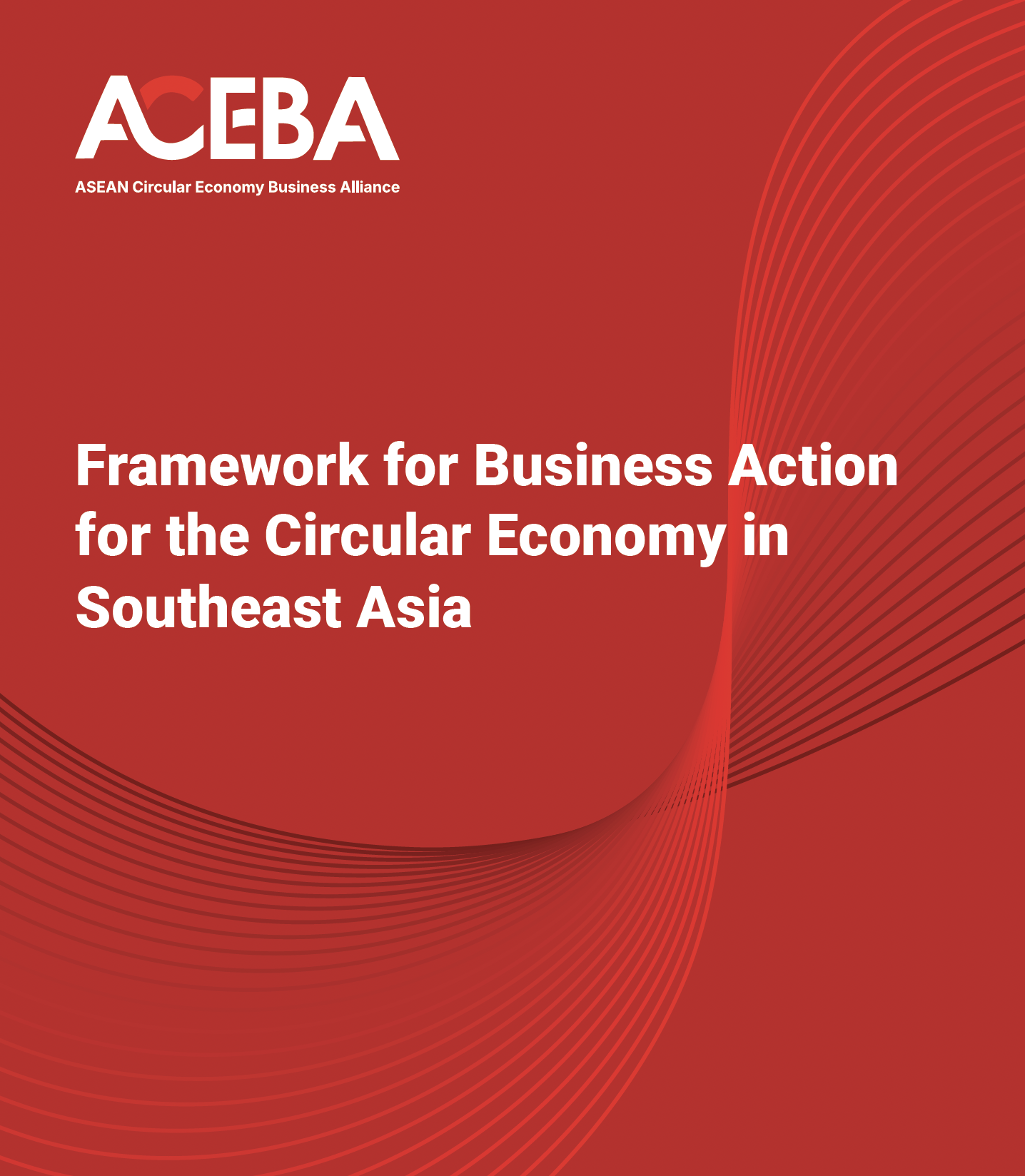Framework for Business Action for the Circular Economy in Southeast Asia

The Framework presented in this Paper is the result of extended engagement and consensus-seeking processes with business representatives and experts - regionally and nationally - in Southeast Asia on the scope and rationale for business engagement with and action towards the Circular Economy.
This Framework positions the Circular Economy as a principled approach to innovation and co-creation, aimed at breaking the dependence of products and services on the unsustainable extraction, use and disposal of materials and other natural resources. Such dependence is a root cause for climate change, loss of nature and biodiversity, and accumulation of pollution and waste – collectively, the triple planetary crises. The Framework offers five guiding principles for business and other organisations to drive an impactful Circular Economy transformation.
In the absence of widely-accepted circularity metrics, businesses can already meaningfully track their own Circular Economy progress with enterprise level metrics, covering both enabling activities as well as circular results. Eight sectors are suggested as an initial Circular Economy focus for Southeast Asia, respectively: food and beverage; textile and garments; leather and footwear; furniture and homewares; automotive; electrical and electronic goods; tourism; and building and construction.
The principles-based Circular Economy Framework presented here, is being used by the ASEAN Circular Economy Business Alliance (ACEBA) to inspire and facilitate business leadership, action and impact for Southeast Asia’s Circular Economy transformation through advocacy, experience curation, knowledge sharing and networking.
Share:
